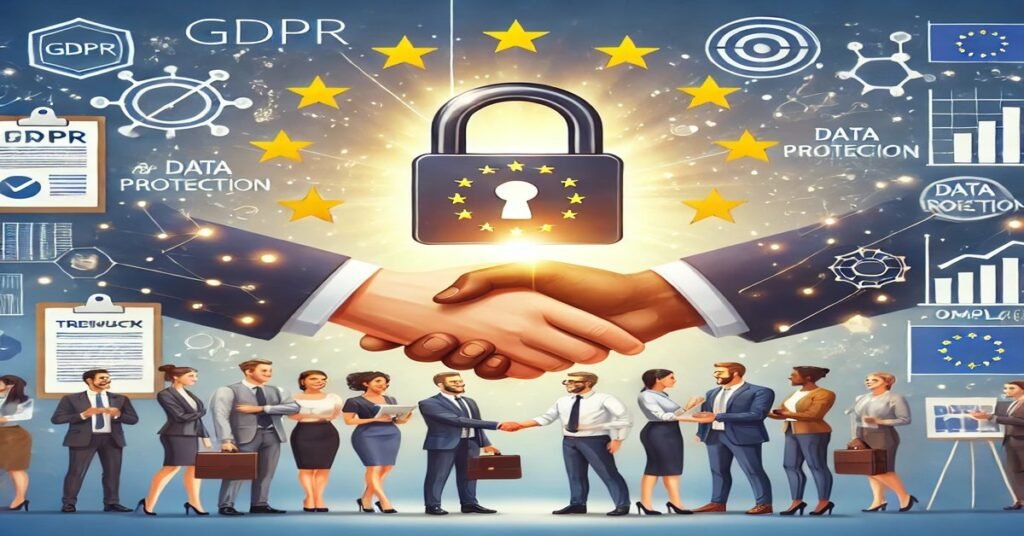
In today’s digital world, data protection and privacy have become paramount concerns for businesses of all sizes. With the introduction of the General Data Protection Regulation (GDPR) in the European Union, companies are now required to comply with strict guidelines regarding the collection, storage, and processing of personal data. One key professional who plays a crucial role in ensuring that a business complies with GDPR is the GDPR consultant. In this article, we will explore the role of a GDPR advisor and how they help safeguard your business data, especially when handling requests like a DSAR (Data Subject Access Request).
What is GDPR, and Why is it Important?
The General Data Protection Regulation (GDPR) is a regulation by the EU aimed at enhancing the protection of personal data and ensuring privacy for individuals within the European Union. GDPR applies to any company—whether based in the EU or outside—that processes the personal data of EU citizens. The regulation establishes guidelines for obtaining consent, managing data breaches, and ensuring transparency in data practices.
Non-compliance with GDPR can lead to hefty fines, reputational damage, and a loss of customer trust. Therefore, businesses need to prioritize GDPR compliance to avoid these risks and foster responsible data management.
What Does a GDPR Consultant Do?
A GDPR consultant is an expert who helps businesses navigate the complexities of GDPR regulations. Their role is to ensure that companies meet all legal obligations under GDPR, protecting both their clients’ data and the company’s interests. Here are some of the key responsibilities of a GDPR consultant:
- Conducting Data Audits
A GDPR consultant starts by conducting thorough data audits to identify where and how personal data is collected, stored, and processed within a business. This audit helps the consultant assess the company’s current data protection practices and identify areas that need improvement to ensure compliance with GDPR. - Developing Data Protection Policies
Based on the audit findings, the GDPR advisor will assist in developing and implementing robust data protection policies. These policies should define how personal data is handled, specify security measures, and ensure transparency about data processing practices. - Training and Awareness
A crucial part of GDPR compliance is ensuring that employees understand the importance of data protection. The GDPR consultant may conduct training sessions for staff to raise awareness about GDPR principles and best practices for safeguarding personal data. - Providing Ongoing Monitoring and Support
GDPR compliance isn’t a one-time task—it’s an ongoing process. The GDPR advisor provides continuous support, including regular audits and updates to policies as regulations evolve. This ensures that the business stays compliant in the long term. - Assisting with Data Breach Management
In the event of a data breach, a GDPR consultant helps companies respond quickly and in accordance with GDPR’s breach notification requirements. This may involve notifying regulatory authorities and affected individuals within the mandated 72-hour window.
The Role of a GDPR Advisor in Handling a DSAR
One of the most important aspects of GDPR compliance involves handling Data Subject Access Requests (DSARs). A DSAR is a request made by an individual to a company asking for information about the personal data that is being processed about them. Under GDPR, businesses must respond to these requests within one month.
A GDPR advisor plays a key role in managing these requests, ensuring that companies handle them correctly and within the regulatory timeframe. Here’s how they can help:
- Receiving and Validating DSARs
The GDPR consultant ensures that the DSAR is legitimate by validating the identity of the requester. This step is important to protect both the business and the individual’s privacy. - Identifying Relevant Data
Once the request is validated, the GDPR advisor helps the business locate the relevant data in its systems. This requires in-depth knowledge of the company’s data processing activities and how personal data is stored. - Compiling the Response
After identifying the relevant data, the GDPR consultant helps compile the requested information in a clear and understandable format. This might include providing details about the type of data collected, the purpose of processing, the duration of data storage, and any third parties with whom the data has been shared. - Ensuring Timely Compliance
One of the key requirements of GDPR is that DSARs must be answered within one month. The GDPR advisor ensures that this timeline is adhered to, avoiding penalties for late responses. - Handling Refusals and Exemptions
In some cases, businesses may need to refuse a DSAR or withhold certain information due to exemptions under GDPR. A GDPR consultant can advise on when it is appropriate to refuse a request, and assist in communicating this decision to the individual in a way that is compliant with the regulation.
Why You Need a GDPR Advisor
While GDPR compliance is mandatory for businesses that handle personal data, it can be complex to navigate the various rules and regulations on your own. Here’s why having a GDPR advisor or GDPR consultant is crucial:
- Expert Knowledge
GDPR consultants have deep knowledge of the regulation, including its nuances and evolving requirements. They can provide businesses with tailored advice based on the specific nature of their operations and data processing activities. - Risk Mitigation
Non-compliance with GDPR can lead to significant fines and penalties. A GDPR advisor helps businesses minimize this risk by ensuring they are fully compliant with the regulation. - Improved Customer Trust
By demonstrating a commitment to data protection, businesses can foster greater trust among their customers. A consultant helps create transparent data protection policies that not only protect personal data but also improve the company’s reputation. - Handling Complex Situations
GDPR has specific requirements around sensitive data, consent, and international data transfers, among other complex topics. A GDPR consultant can help businesses navigate these areas to ensure comprehensive compliance.
Conclusion
A GDPR consultant or GDPR advisor plays a pivotal role in ensuring that businesses comply with data protection laws and manage their customers’ personal data responsibly. From assisting with DSARs to developing data protection strategies, these professionals safeguard your company against legal risks and enhance customer trust. With data privacy becoming an increasing concern for consumers, having a qualified GDPR advisor is essential for any business that deals with personal data.
By proactively investing in GDPR expertise, businesses not only meet legal requirements but also gain a competitive edge in a privacy-conscious marketplace.




